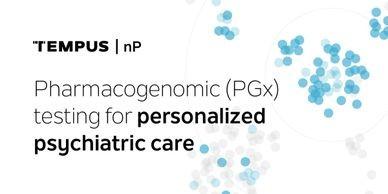PHARMACOGENOMI CS TESTING:
What, Why, Who and When
Kyle John, MD
2024 GCMS Conference
Breckenridge, CO
7/17/24 8:00-9:00

Kyle John, MD
2024 GCMS Conference
Breckenridge, CO
7/17/24 8:00-9:00
• To be able to explain what pharmacogenomic testing entails
• To become familiar with why pharmacogenomic testing could be utilized
• To learn who may benefit from pharmacogenomic testing
• To be able to describe when pharmacogenomic testing should be employed

• Humans have two copies of every gene, one from each parent
• Alleles are slight variations of a gene; they may be identical or differ in number and function
• Genes are made of DNA
• Some DNA codes for mRNA
• mRNA codes for proteins
• Proteins do many important tasks in our bodies

• Medication efficacy can be influenced by two primary genetic factors, pharmacokinetic and pharmacodynamic
• Kinetic refers to the genes that code for the main CYP450 liver enzymes responsible for medication metabolism
• Dynamic refers to the genes that code for the ability to transport a neurotransmitter, like Serotonin

2D6
3A4
3A5
2C9
2C19
1A2
2B6
UGT2B15
CES1A1

Patients may have too few, too many, or the normal number of/functional alleles for a particular CYP450 enzyme
• Poor metabolizer
• Intermediate metabolizer
• Normal metabolizer
• Rapid metabolizer
• Ultrarapid metabolizer

Patients may also have drugdrug-gene interactions:
• Strong CYP2D6 inhibitors: fluoxetine, paroxetine, bupropion
• Moderate/weak CYP2D6 inhibitors: duloxetine, sertraline, escitalopram
• CYP3A4 inducers: carbamazepine, phenobarbital, phenytoin, St. John’s wort
• CYP3A4 inhibitors: fluoxetine, fluvoxamine, grapefruit juice, CBD
• CYP2C19 inhibitors/substrates: THC, CBD, PPIs, oral contraceptives




• Four leading global agencies have the most research regarding PGX testing and best-practice recommendations
• There are common recommendations, but…
• They don’t always agree
• Increase medication success • Reduce adverse drug reactions • Decrease healthcare cost • Improve healthcare quality
• History of medication
or intolerance
• Family history of medication failure or intolerance
• Increased ethnic risk
• High risk diagnostic groups
• Before beginning treatment
• During treatment if the patient is not finding maximal benefit or is experiencing significant medication intolerance
• After multiple failed trials

1. Make an accurate diagnosis
2. Determine if medication is indicated
3. Check PGX results if available, or discuss with the patient/family the potential benefits of obtaining
4. Choose a medicine based upon:
1. Best-practice guidelines
2. FDA recommendation(PI)
3. Family history/past trials
4. Side effect avoidance
5. Adjust the dose or consider alternatives based on PGX results









1. How we clone someone’s DNA
2. How we test for Down’s Syndrome
3. A way to determine if patients have kinetic or dynamic genetic variations affecting medication metabolism and efficacy
4. How the PGA prevents professional golfers from juicing before tournaments
PGX testing should be used to?
1. Determine how a patient might respond to a particular medication
2. Pick the “can’t fail” medication to treat depression
3. Know which patients will respond to therapy vs. medication
4. Rule out substance use as the cause for a psychiatric illness like depression or anxiety
1. Only female patients should be tested
2. Only patients who fail 3 drug trials should be considered
3. Any patient can be tested, but they must be wealthy to afford the cost
4. Any patient can be tested
1. Before taking a thorough history
2. After a patient has failed multiple medication trials and been hospitalized 3. Any time you consider medication management for a psychiatric disorder
4. On the first and third Tuesdays of the month, if there is a full moon

• Strawn, JR. NEI Congress, 2022.
• Ramsey LB et al. AnnuRev PharmacolToxicol2020;60:311-31.
• Ramsey LB et al. J Am AcadChild AdolescPsychiatry 2021;60(6):660-4.
• GeneSight.com
• Clinical Pharmacogenomics Implementation Consortium (CPIC) https://cpicpgx.org/guidelines/
• Dutch Pharmacogenetics Working Group https://www.knmp.nl/
• Pharmacogenomics Knowledge Base (PharmGKB) https://www.pharmgkb.org/
• https://doi.org/10.1016/j.psychres.2023.115102